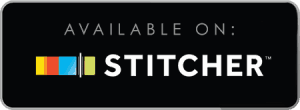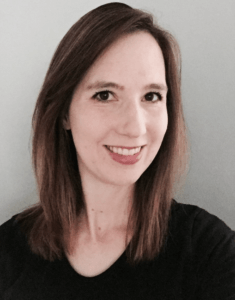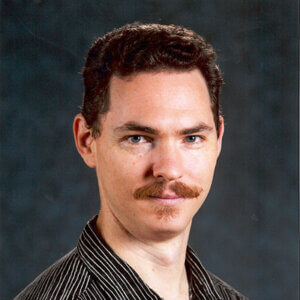Consider how many musicians playing beneath your level are making more money than you.
Now consider how many amazing musicians are not working.
This should be enough to convince you that musical skill does not always correlate with successful careers.
Successful musicians are usually “good enough” at what they do, but they are also people who got lucky, have an incredible network, or built a successful business through hard work and skillful promotion.
Of these three things, the only thing you can control, besides your musicianship, is your skill at running a business.
To do this well, you’ll need support.
The restaurant business offers a useful analogy:
Eight out of ten restaurants fail, and I’d bet that most of these restaurants are launched by chefs who make really tasty food! The reason they fail is that there is a difference between cooking and running a restaurant.
Being good at your craft is different than being good at the business of selling your craft. If you want to grow your career quickly, start developing some business chops, and get support. (Even the world’s greatest leaders all hire advisors.)
Most musicians feel repulsed by the word “business”. We just want to play music. Asking for money feels pushy and dirty.
If you believe in the value of your music, than by definition, you should assign value to it. It requires income to make time for practice, let alone providing for our families and taking care of ourselves.
Sales and marketing make up the engine of your business. Clear goals, organizational skills and a focused mindset help keep that engine running.
Assuming you have a valuable product or service, if you simply offer that product persistently and effectively to the right people, the more gigs you’ll attract and the more money you will earn.
It’s really that simple.
Of course, simple is not always easy.
To develop any skills, it helps to have support in the form of community, or coaching.
Scroll down past the Video and Podcast for the rest of this article, and to learn my intro process.
Thanks to our sponsors at Yamaha and Electric Violin Shop for their continued support of the Creative Strings Podcast.
Listen/Watch here:
[optin-monster-shortcode id=”zwmxwqsxbmmbj1i9bk98″]
Now then….
Here’s a process you can use to create a burst of income or develop a new project. It’s part of the introductory process that I guide people through in my coaching and courses.

1) Decide how many hours per week you will devote to proactively working on your business. (Not practice time!)
2) Choose no more than three specific goals.
Examples of what are NOT typically good goals (because these are usually a means to an end):
-
- Build a website
-
- Make a Facebook page, or “do more social media”
- Produce an album
Here are better examples of short term and long term goals:
– Get more work playing side person gigs. (where/how much/what type)
-Create an additional $200 per week in income from private teaching
-Get more gigs with your own ensemble playing at bigger festivals/venues
-Get paid for placing your original music in TV/Film/Online
-Establish a 501(c)(3) organization to spearhead several grant-funded projects.
-Create a booking agency and book x number of gigs
-Start a remote recording or production service and earn X amount within three months.

3) Create a sales/action plan related to each goal. The plan should include:
-Who are the related contacts or prospects (the buyers or the decision makers who can provide you with a gig, referral, or advice.)
-What are the best ways to reach these contacts with your offer (including contact info and preferred mode of contact)
The Pitch: sales letters, videos, voice mails, script, etc… You may need multiple versions of each. For example, a letter for the first touch, a letter for when people say they are interested, a letter asking for referrals, etc.
4) Develop marketing collateral, e.g., presentations, audio, video, website, images, flyers, social media pages, testimonials, social posts, email signatures or templates.
Describe your service or product in three ways: a) in a sentence, b) in a paragraph, c) in a page. (A five-word description is great too.) Your sales materials should include the benefits your service provides to your clients. List the features of your service, but more importantly, list the benefits it provides.
Example:
My music business course will provide these benefits to working musicians: more income, more time, more desirable gigs, and more impact.
My music business mentoring group contains the following components: Personalized support, group calls, peer-support, curriculum resources, etc.
5) Go into action. Start making offers. Promote, market, and sell.
Effective sales requires persistence/patience, organization, and confidence. there are various tactics and strategies, but for most of us, the psychology behind selling is even more important.
Frame your offers in terms of asking for advice, referrals, or gigs.
Present them via email, social media messages, texts, phone calls, or face to face
Identify your “go to” tools such as CRM, auto responders, email marketing applications, Facebook or YouTube ads, email signatures, templates, LinkedIn messages, social media campaigns, time saving apps. Delegate or automate wherever possible.
Be very clear about “why” you are building your business. For example, “I want to support my family. I want to have a vacation once a year. I want to make a difference in the world. I really love to make music, and I really don’t want to do another job”. Make sure your offers feel congruent with your personality and values. Craft an approach in keeping with who you authentically are.
Establish a reasonable goal of number of quality offers to make daily or weekly.

6) Mindset: Business is practical, but mindset is crucial. Beyond answering the question “WHY” you want to be in the music business, and believing in the value of what you have to offer, be Responsible, Kind, Grateful, Confident, and In Service. Be in service to others through the music you make (or teach!). Allow the impact of the beauty you bring to the world to be a cause that lifts you up such that you are willing to unabashedly fight for it.
To begin creating more income in your music business, schedule a free call with me .
Interested in organizing an entrepreneurship workshop in your town or school? Contact me at chris@christianhowes.com
A fulfilling career in music is something worth fighting for.
The mountain is there in front of you.
Will you climb it or not?

Table of Contents
What’s holding you back from selling your music?
Read my article on the number one thing I see holding back most musicians here.
Clip in this episode
“Greatness Trailer” – Produced by Christian Howes and Hamilton Hardin, for Lewis Howes and the School of Greatness












